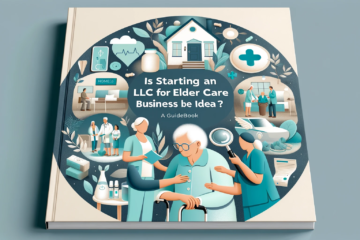Are you ready to dive into the world of boat winterization business? Starting an LLC for your venture is the first step towards success.
In this article, we’ll guide you through the process of choosing a business name, registering your LLC, obtaining licenses and permits, securing insurance, and developing a marketing strategy.
Get ready to sail smoothly through the exciting journey of starting your own boat winterization business.
Choose a name for your LLC that reflects your services and appeals to your target market, using keywords related to boat winterization. Conduct a trademark search to ensure your chosen name is available and consider the right business structure for your LLC. Obtain the necessary licenses and permits, such as a zoning permit, and comply with environmental regulations and waste disposal requirements. Secure insurance that provides liability coverage and protects your business from risks and liabilities, considering specific coverage options and limits.
Choosing a Business Name
When starting an LLC for your boat winterization business, you need to choose a business name that reflects your services and appeals to your target market. Creating a memorable brand is crucial for the success of your business. A strong and unique name will help you stand out from the competition and make a lasting impression on your customers.
To begin, brainstorm words and phrases that are related to boat winterization. Consider using terms like ‘winterize,’ ‘boat care,’ or ‘marine services’ in your business name. These keywords will immediately convey what your business does and attract customers who are searching for those specific services.
Next, think about your target market. What kind of customers are you trying to attract? Are they boat owners, yacht enthusiasts, or commercial fishermen? Tailor your business name to appeal to your target audience. For example, if you’re targeting yacht owners, use words like ‘luxury,’ ‘premium,’ or ‘exclusive’ in your name to create a sense of sophistication and quality.
Once you have a few potential names in mind, it’s vital to conduct a trademark search. This step is often overlooked but highly important. You don’t want to choose a name that’s already trademarked, as it could lead to legal issues down the line. Use online databases or consult with a trademark attorney to ensure that your chosen name is available.
Registering Your LLC
To register your LLC for your boat winterization business, you’ll need to follow the necessary steps and requirements set by your state’s business registration process.
One of the first things you’ll need to consider is choosing the right business structure for your LLC. This decision will affect how your business is taxed and the level of personal liability you have. Common options include sole proprietorship, partnership, corporation, and Limited Liability Company (LLC). The LLC structure is often preferred by small business owners as it offers the benefits of both a corporation and a partnership, providing personal liability protection while allowing for flexible management and tax advantages.
Once you have chosen your business structure, the next step is to file the Articles of Organization with your state’s business registration agency. This document officially establishes your LLC and includes important information such as the LLC’s name, address, and the names of its members or managers. It’s important to carefully review the filing requirements and fees for your state, as they may vary. Some states also require additional documents, such as an Operating Agreement, which outlines the internal operations and ownership structure of the LLC.
After submitting the necessary paperwork and paying the required fees, you’ll receive a Certificate of Organization or a similar document confirming the registration of your LLC. It’s crucial to keep this document safe, as it will be required for various business transactions, such as opening a bank account or obtaining business licenses and permits.
Registering your LLC is a crucial step in establishing your boat winterization business. By choosing the right business structure and filing the necessary documents, you can ensure that your business is legally recognized and protected.
Obtaining the Necessary Licenses and Permits
To ensure the legal operation of your boat winterization business, you’ll need to obtain the necessary licenses and permits. One important step is applying for a zoning permit. This permit confirms that your business location is in compliance with local zoning regulations. It ensures that your boat winterization business is situated in an appropriate area and doesn’t disrupt residential or commercial neighborhoods. Contact your local zoning department to understand the requirements and application process.
Another crucial aspect is understanding environmental regulations. As a boat winterization business, you’ll be dealing with potentially hazardous materials, such as antifreeze and cleaning agents. It’s essential to comply with environmental regulations to protect the environment and prevent pollution. Familiarize yourself with the specific regulations in your area regarding the proper disposal of waste materials, recycling requirements, and any necessary permits for handling hazardous substances.
To gain a comprehensive understanding of these regulations, consider consulting with a legal professional or an environmental agency. They can guide you through the process and ensure that you’re meeting all the necessary requirements.
Securing Insurance for Your Boat Winterization Business
To protect your boat winterization business, you need to secure insurance coverage. Understanding liability coverage is crucial in order to safeguard your business from potential risks and liabilities. Liability coverage will protect you in the event that a customer or employee is injured on your premises, or if your work causes damage to a customer’s boat.
It’s important to carefully review the terms and conditions of your liability coverage to ensure that it adequately covers your specific business activities.
When comparing insurance providers, there are a few key factors to consider. First, you should evaluate the reputation and financial stability of the insurance company. Look for a provider that has a solid track record and is known for their prompt and fair claims handling process.
Additionally, consider the specific coverage options and limits offered by each provider. Make sure that the policy covers all the necessary aspects of your boat winterization business, such as property damage, general liability, and workers’ compensation.
Obtaining insurance for your boat winterization business isn’t a step to be taken lightly. It’s an investment in the protection and longevity of your business. By understanding liability coverage and carefully comparing insurance providers, you can ensure that you have the right coverage in place to safeguard your boat winterization business.
Developing a Marketing Strategy
Once you have secured insurance coverage for your boat winterization business, it’s time to develop a marketing strategy to attract customers and promote your services.
The first step in developing a marketing strategy is to target the right customer base. Understanding your target market will help you tailor your marketing efforts and reach the right audience. Identify the types of boat owners who are most likely to require winterization services, such as owners of larger boats or those in areas with colder climates. This will allow you to focus your marketing efforts on reaching this specific group of potential customers.
Once you have identified your target customer base, the next step is to create compelling marketing materials. Your marketing materials should clearly communicate the benefits of your winterization services and why boat owners should choose your business over your competitors. Consider creating a professional website that showcases your services, testimonials from satisfied customers, and easy ways for potential customers to contact you. Additionally, you can create brochures or flyers that you can distribute at marinas, boat shows, or other relevant events. These materials should be visually appealing, have clear messaging, and include your contact information.
Conclusion
In conclusion, starting an LLC for a boat winterization business requires careful planning and attention to detail. By choosing a catchy business name, registering your LLC, obtaining the necessary licenses and permits, securing insurance, and developing a solid marketing strategy, you’ll be well on your way to success.
Remember to consider the specific needs of boat owners in your area and provide excellent customer service to stand out from the competition.
Frequently Asked Questions
What Is the Average Cost of Winterizing a Boat?
The average cost of winterizing a boat varies depending on factors such as the size and type of boat. It is recommended to compare the cost of professional services with the expenses of doing it yourself to make an informed decision.
How Long Does the Boat Winterization Process Typically Take?
On average, boat winterization typically takes a few hours. However, the time can vary depending on the size and type of boat. To ensure best practices, it’s recommended to follow manufacturer guidelines and consult with a professional.
Are There Any Specific Regulations or Guidelines for Disposing of Antifreeze Used in Boat Winterization?
When it comes to disposing of antifreeze used in boat winterization, it’s important to follow disposal regulations to minimize environmental impact. Check with your local authorities for specific guidelines on proper disposal methods.
What Are the Common Risks or Challenges Associated With Boat Winterization Businesses?
Common risks and challenges associated with boat winterization businesses include ensuring safety precautions are followed to avoid accidents or injuries, and addressing environmental concerns by properly disposing of antifreeze and other hazardous materials.
Are There Any Recommended Tools or Equipment for a Boat Winterization Business?
To effectively run a boat winterization business, you’ll need a few recommended tools and equipment. These include engine fogging spray, antifreeze, fuel stabilizer, oil change kit, shrink wrap, and a pressure washer for cleaning the boat.

Aisha Noreen is an owner of a small business with more than 9 years of experience in the marketing industry. With the wisdom of an old soul, she always seeks innovation and mind-blowing ROI techniques. Her unique approach helped many small businesses thrive and she can surprise you in many ways as well. Believe it or not, her energy, passion, and creativity are contagious enough to transform your business and take it to another level.








